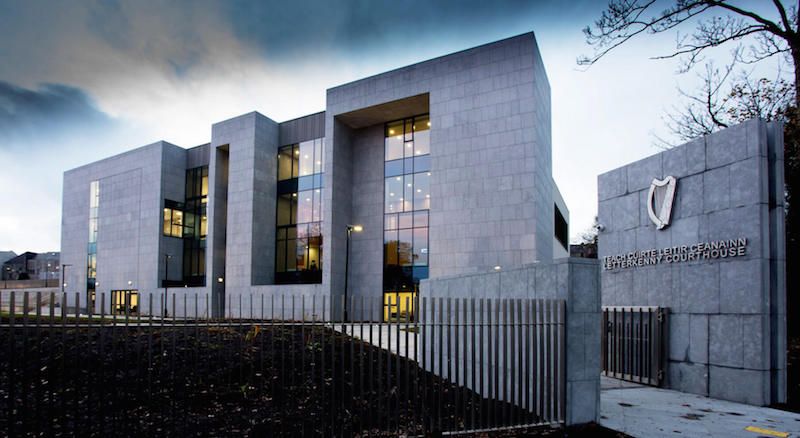A new report has recommended that people accused of sexual offences in court should not be named until they are convicted.
Up until now, people can be named when they come before local courts in Donegal and the rest of the country charged with offences such as sexual assault unless there is the risk the alleged victim can be identified.
But a new report recommends that anonymity should be granted to those accused of all sexual offences, not just rape, unless and until they are convicted.
The review of protections for vulnerable witnesses in sexual offence cases, chaired by law lecturer and barrister Tom O’Malley, also recommends that all victims of sexual offences should have the opportunity to receive free legal advice.
Mr O’Malley was asked to head a working group in the aftermath of the high-profile trial in Belfast in 2018 in which rugby players, Paddy Jackson and Stuart Olding were acquitted of rape.
The group’s report says many of its recommendations can be given effect without the need for statutory change.
However, recommendations involving giving anonymity to those accused of sexual assault and excluding the public from such trials will need changes in legislation.
Mr O’Malley said the review was aimed at making sure victims of sexual crime have access to information and advice from the time the offence is committed, that they are kept informed of progress of the investigation and are treated with respect and dignity during the process.
The working group was set up amid public concern about publicity surrounding the 2018 trial in Belfast, in which rugby players Paddy Jackson and Stuart Olding were acquitted of rape.
The public in Northern Ireland are allowed to attend rape trials and the complainant in the case was named on social media.
Under the legislation in this jurisdiction, rape trials are not open to the public. Those accused of rape cannot be named until conviction and only then, if it would not lead to the victim also being identified.
Despite these differences in legislation between Northern Ireland and the Republic, the then Minister for Justice Charlie Flanagan asked the working group to review how vulnerable witnesses, including defendants, are treated in the investigation and prosecution of sexual offences.
The law in this area was updated in 2017, but Mr O’Malley says many key provisions, such as those relating to anonymity date back to the 1980s and 1990s.
He says victims are treated better in the criminal justice system than they were in the past and there is greater understanding of the difficulties they experience. But he says, more needs to be done to vindicate their rights and interests.
The working group says victims should retain their anonymity in all cases of sexual offences. And it says anonymity should be extended to those accused of sexual assault, who are not currently entitled to it.
At present those accused of sexual offences other than rape or aggravated sexual assault can be named after being charged.
The working group says there does not appear to be any logical reason why accused people should be entitled to anonymity in a rape trial but not in a sexual assault trial.
It says consideration should also be given to giving anonymity to people charged with other sexual offences including child sexual exploitation offences and offences against people with mental illness and intellectual disability.
It recommends the victims in the latter offences should also have anonymity which it says, does not seem to be provided for in legislation.
But the review says the case for restricting the publication of the names of people charged with what are called child pornography offences, is not particularly strong and would raise questions about how many other offences should be treated in a similar way.
The working group also recommends that the exclusion of the public from rape trials should be extended to other sexual offences. And it says legislation directing sentencing of rape cases to be carried out in public should be repealed as it could lead to identification of the victim.
Tags:







